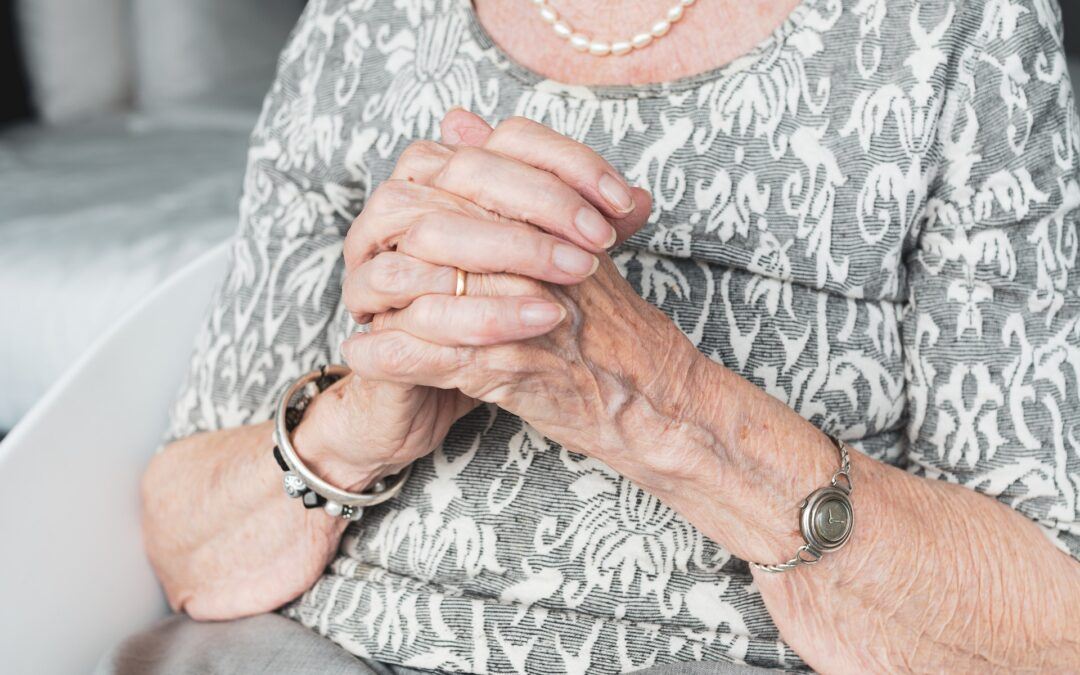Dementia’s early symptoms are subtle and ambiguous, and they may not be noticeable right away. Having a loved one experience the symptoms of dementia, both with and without a diagnosis, can be confusing and frustrating for family members. This World Alzheimer’s Awareness Month, we want to highlight and educate people on different aspects of how Alzheimer’s impacts people’s lives. We spoke to Mrs R Geyer, whose mother is a resident at Livewell Estates. She chatted to us about her experience of her mom being diagnosed with Alzheimer’s.
Did you have an understanding of memory loss before your mother was, diagnosed?
Yes, my grandmother on my mother’s side also suffered from Alzheimer’s for many years. She lived to be 96 years, and I often visited her in Pretoria. The last ten years were challenging when all bodily functions were lost, and she just sat in her recliner with no response to anything being said and no recognition or remembrance left. My uncle (my mother’s brother) also had Alzheimer’s and died of a stroke two years ago. My father suffered from Lewy Body Dementia that was only diagnosed at a very late stage.
Did you have any misconceptions of the disease and later learnt it wasn’t true?
Yes. I did not initially realise that the rate of deterioration differs so much for each person. My mother is still relatively young, and her condition worsened much quicker than anticipated. I thought the phases of regression were the same for everyone and that all patients have abusive outbursts and fear of washing/showering. However, my mother is still an optimistic, loving person and loves the water or a hot shower. She tends to get emotional at times but not abusive.
What were the signs leading to your mother’s diagnosis?
My mother started to forget recent events or details of telephone conversations that we had. She started repeating herself over and over when telling us something that happened and asked the same questions repeatedly. Sometimes she couldn’t find the right word for something and frequently misplaced her glasses, cellphone or handbag. Given the Alzheimer’s gene, I became concerned. My siblings, however, disagreed initially.
How did it feel when your mother was diagnosed?
I felt relieved. I started to gather relevant information on the phases and progression of Alzheimer’s, especially on how to treat my mother to still feel respected, confident, and sure of herself.
Did anything make you feel better or reassure you about her condition?
Initially, my father could still take care of her. He would make them tea or breakfast, remind her of appointments, tell her what day was, and correct her whenever she got mixed up with timelines or names. When she got disorientated, he would help her. When he passed away in February, I had already gathered information on Alzheimer facilities, where specific attention is given to stimulate the memory and fine motor skills. This reassured me that she would be able still to lead a safe and good life despite the diagnosis.
What did you wish you knew about dementia before your mum’s diagnosis?
I wish I’d known how to prevent the early onset and quick progression of dementia to full-blown Alzheimer’s. The psychiatrist prescribed medication to help delay the deterioration of the brain after she was officially diagnosed. My parents were in a horrific car accident the year before she was diagnosed. The trauma and several operations where anaesthetics had to be administered definitely took their toll on her overall mental degeneration.
How has the transition been for your mum at Livewell?
It was difficult at first. She had to deal with the loss of her husband and had an emergency operation just weeks before we transferred her to Livewell. She had to get used to her new surroundings, a new routine, new faces, carers and being part of a daily activity programme. Now, 6 months later, she is less emotional, loves the outings, takes part in most activities and even has compassion with and befriends newcomers to Livewell. She sometimes misses being part of a family but realises that she is cared for and therefore she feels safe.
Do you have any advice for families experiencing something similar?
- Don’t wait too long before taking your loved one to be diagnosed. Initial symptoms are sometimes mistaken for normal ageing.
- Dementia/ Alzheimer’s is not a death sentence. It is a disease that needs understanding.
- Gather information to truly understand the phases of regression of the disease.
- Patients with Alzheimer’s increasingly rely on assistance. Don’t wait too long to have them placed in a decent facility where their brains are cared for and stimulated by cognitive and physical activities. They need time to adjust.
- Celebrate every hug, smile, “good” day and a glimpse of remembrance with every visit. Don’t regret your absence later on.
- Become part of their little world. Don’t become agitated if they ask the same thing ten times in a row. Just smile and answer.
- This will make your loved one feel safe and secure. If you confront them, they tend to shut down.
- Talk about what interests them, listen to their favourite music or look at photo albums together.
- Talk about special events from the past. Their long term memory might surprise you.
- Surround your loved ones with family photos and some personal belongings to make them feel more secure.
- Some patients tend to get “bad” days when they get extremely anxious, abusive or paranoid. It is not their fault. Just keep loving them unconditionally. Tomorrow might be better.
- Time is precious. Spend as much time as possible with your loved one. Create special memories while you still can!
